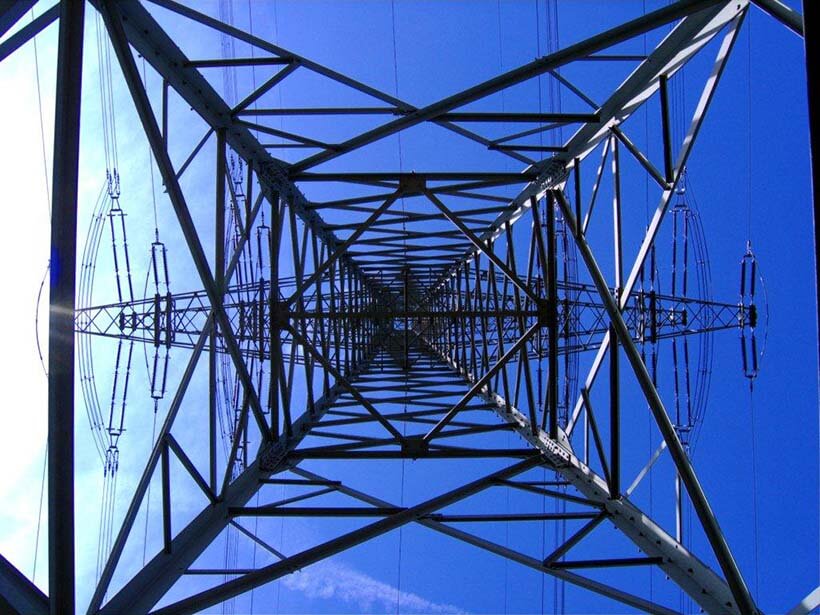Project News
Market Feature: Power Generation & Transmission

Globally, we are in the midst of a massive spike in energy demand. According to the U.S. Energy Information Administration, our worldwide demand for energy will increase 53 percent between 1990 and 2035. Renewable energy will see the biggest jump (from 10 to 14 percent), but fossil fuels will continue to provide approximately 80 percent of our energy worldwide.
Member nations of the Organization for Economic Cooperation and Development, a group of 34 emerging and developed countries like the U.S. and Canada, will drive about 30 percent of the increase, while non-OECD nations, namely China and India, will account for about 70 percent.
Electricity consumption is growing even faster, increasing by a whopping 84 percent during this same time. Electricity is generated primarily from six main sources: coal, natural gas, nuclear, hydropower, renewable (i.e. wind and solar) and liquids. In the U.S., the majority of electricity is generated from natural gas (25 percent) and coal (42 percent). In Canada, about 60 percent of energy comes from hydropower. The public and private sectors will face immense challenges in not only meeting this demand, but meeting it in a way that does not unduly burden the environment.
Over the past several years Flatiron has directed increasingly more resources to this “power” market, including dams, hydropower, mining infrastructure and transmission lines. “Our primary focus remains heavy civil infrastructure for public transportation including bridges, roads, tunnels, ports and transit. But there is an opportunity for power projects to provide a significant portion of related heavy civil work in the next five years or so,” says Steve Small, vice president of business development in Canada.
It’s hard to lump power-related projects into a single market because the construction scopes are so different. Transmission lines present unique challenges, like having to buy and ship the towers and conductors from overseas. The construction methods are also extremely challenging—Flatiron is building 600 tower foundations and will use a helicopter to string conductor line for the new Interior to Lower Mainland transmission line in British Columbia.
Also in British Columbia, Flatiron is retrofitting the Ruskin Dam, an existing powerhouse and dam facility built in the 1920s. “This project requires close coordination with the plant operators, because we must maintain existing power operation,” notes Steve. Flatiron’s contract is part of a series to retrofit the dam to withstand a 10,000-year earthquake. The upgraded facility will provide power to 33,000 homes.
 “We’re investing to improve aging facilities and infrastructure,” says Judy Dobrowolski, who handles capital projects communications for BC Hydro. “We’re building new substations and transmission lines to link to them and making critical improvements to more than 80,000 kilometers of transmission and distribution lines.”
“We’re investing to improve aging facilities and infrastructure,” says Judy Dobrowolski, who handles capital projects communications for BC Hydro. “We’re building new substations and transmission lines to link to them and making critical improvements to more than 80,000 kilometers of transmission and distribution lines.”
BC Hydro expects the demand for electricity to increase by 20 to 40 percent in the next 20 years, the equivalent of adding five cities the size of Vancouver to the grid.
In 2010, the Clean Air Act consolidated BC Hydro and BC Transmission Corporation into a single entity that plans and delivers clean energy to the province. The legislation requires BC Hydro to generate at least 93 percent of electricity from clean or renewable resources and to build the infrastructure necessary to transmit that electricity. To meet these requirements, BC Hydro will spend $1.5 billion on generation and $3.7 billion on transmission and distribution, just through 2014, on more than 30 planned projects.
Steve says hydropower is a tremendous clean and renewable natural resource that has provided low-cost power for many generations. Another benefit is the energy can be stored to use at peak power periods during the day, which is a distinct cost advantage over coal and gas plants.
Other work in British Columbia includes the C$8 billion Site C, a proposed third dam and hydroelectric generating station on the Peace River in northeast British Columbia. “Site C would be a source of clean, reliable and cost-effective electricity for more than 100 years, providing enough energy to power the equivalent of about 450,000 homes per year in the province,” says Steve. Early works packages will be issued in 2013.
In addition to the work in British Columbia, Flatiron plans to bid multiple contracts for a massive $6 billion scheme to develop the lower Churchill hydroelectric project located on a tributary of Lake Melville—a location that, as the crow flies, is a 1,500-mile trek northeast of New York City in a cold and remote area of Newfoundland.
The majority of the work required for massive hydropower projects is essentially heavy civil infrastructure work, like excavation and construction of foundations, structures and roads. Work at Lower Churchill includes excavation for a 14-story building, installation of turbines and a generator, construction of cofferdams and roller compacted concrete dams, a C$1 billion spillway and a C$1 billion transmission line. All of these projects are expected to come out for bid over the next six months.
There is another estimated $15 billion in transmission line work throughout Alberta and Manitoba.
